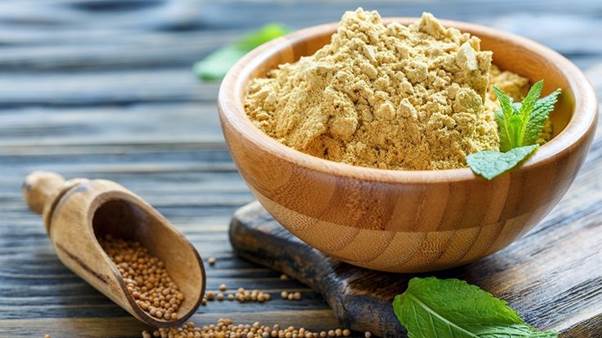
Introduction
Mustard flour, derived from ground mustard seeds, has been a staple ingredient in various cuisines for centuries. Traditionally used as a spice, its unique flavor profile and nutritional benefits have garnered renewed interest, leading to innovative applications in the food industry. As consumers increasingly seek natural, health-conscious alternatives to artificial additives and preservatives, mustard flour emerges as a versatile ingredient that can enhance flavor, improve nutritional profiles, and contribute to sustainable food practices. This article explores the innovative applications of mustard flour in the food industry, highlighting its uses in various products and its potential to transform culinary practices.
Nutritional Benefits of Mustard Flour
Before diving into its applications, it is essential to understand the nutritional benefits that mustard flour brings to the table. Mustard seeds are rich in protein, fiber, and essential fatty acids. They contain significant amounts of vitamins and minerals, including vitamin E, magnesium, selenium, and phosphorus as per report published by Persistence Market Research. Moreover, mustard flour is low in carbohydrates and has a low glycemic index, making it an excellent choice for health-conscious consumers.
Additionally, mustard flour possesses antioxidant and anti-inflammatory properties due to the presence of compounds like glucosinolates. These compounds may contribute to reducing the risk of chronic diseases, making mustard flour a valuable addition to a balanced diet. As a result, the food industry is increasingly incorporating mustard flour into a variety of products, capitalizing on its health benefits while meeting consumer demands for wholesome ingredients.
Innovative Applications in the Food Industry
1. Gluten-Free Baking
One of the most promising applications of mustard flour is in gluten-free baking. With the rising prevalence of gluten intolerance and celiac disease, the demand for gluten-free products has surged. Mustard flour can serve as a gluten substitute, providing structure and texture to baked goods. Its high protein and fiber content also contribute to improved moisture retention and shelf life.
Innovative bakers are experimenting with mustard flour in recipes for bread, muffins, and cakes. For instance, adding mustard flour to gluten-free bread mixes can enhance flavor and texture while providing additional nutritional benefits. Furthermore, its unique taste can introduce a new dimension to conventional baked goods, appealing to adventurous consumers looking for novel flavors.
2. Mustard Flour in Sauces and Dressings
Mustard flour is a natural fit for sauces and dressings, where its flavor and emulsifying properties can enhance the overall profile of the product. Traditionally used in condiments like mustard, mayonnaise, and vinaigrettes, mustard flour can serve as a thickening agent and a flavor enhancer in various sauces.
For example, food manufacturers are increasingly incorporating mustard flour into salad dressings to provide a unique flavor twist while improving the nutritional profile. The use of mustard flour can also reduce the need for artificial emulsifiers and thickeners, appealing to health-conscious consumers seeking clean-label products. Additionally, mustard flour can add a spicy kick to barbecue sauces, marinades, and dips, making it a versatile ingredient in culinary applications.
3. Meat and Plant-Based Protein Products
Mustard flour is finding its way into both meat and plant-based protein products, where it acts as a binding agent and flavor enhancer. In meat products, mustard flour can improve texture and moisture retention while imparting a distinct flavor that complements various meats. Its high protein content also contributes to the overall protein profile of processed meats.
In the realm of plant-based proteins, mustard flour is gaining traction as a key ingredient in vegetarian and vegan products. Its binding properties make it an excellent addition to veggie burgers, sausages, and meat alternatives. Food manufacturers are increasingly utilizing mustard flour to create products that not only mimic the taste and texture of meat but also deliver a healthier, plant-based option. As the plant-based food trend continues to grow, mustard flour presents a valuable ingredient for companies looking to innovate in this space.
4. Snack Foods
The snack food market is another area where mustard flour is making waves. With consumers seeking healthier snacking options, food manufacturers are turning to mustard flour to create innovative, nutritious snacks. Its unique flavor profile can enhance various snack products, from chips and crackers to popcorn and trail mixes.
For instance, mustard flour can be blended with whole grains and seeds to create nutritious crackers that appeal to health-conscious consumers. The addition of mustard flour not only improves the taste but also elevates the nutritional content, making these snacks more appealing to those seeking healthier alternatives. Additionally, mustard-flavored popcorn has gained popularity as a savory snack, providing consumers with a unique flavor experience.
5. Mustard Flour in Dairy Alternatives
As the plant-based movement continues to gain momentum, mustard flour is finding applications in dairy alternatives. Its emulsifying properties make it an excellent choice for creating creamy textures in plant-based yogurt, cheese, and sauces. By incorporating mustard flour into these products, manufacturers can achieve a rich, satisfying mouthfeel while enhancing flavor.
For example, plant-based yogurts made with mustard flour can deliver a tangy flavor reminiscent of traditional dairy yogurt, appealing to consumers looking for dairy-free options. Furthermore, mustard flour can be used in vegan cheese spreads to enhance flavor and texture, providing a delicious alternative to conventional dairy products.
6. Health Supplements and Functional Foods
The growing awareness of health and wellness has led to the emergence of functional foods and health supplements. Mustard flour market, with its rich nutritional profile and health benefits, is increasingly being included in these products. Food manufacturers are incorporating mustard flour into protein powders, meal replacements, and nutritional bars to enhance their nutritional content.
The inclusion of mustard flour in health supplements can provide consumers with additional protein and fiber while delivering a unique flavor. Moreover, its antioxidant and anti-inflammatory properties may appeal to health-conscious consumers seeking functional foods that support overall well-being. As the demand for health supplements continues to rise, mustard flour presents a valuable ingredient for manufacturers looking to differentiate their products.
7. Sustainable Food Practices
In addition to its culinary applications, mustard flour aligns with the growing trend toward sustainable food practices. Mustard seeds are resilient crops that require less water and fewer pesticides compared to traditional grains. By incorporating mustard flour into various products, food manufacturers can promote sustainable sourcing and support environmentally friendly practices.
Furthermore, mustard flour can be used as a natural preservative due to its antimicrobial properties, extending the shelf life of products without the need for artificial additives. This sustainability aspect resonates with consumers who are increasingly concerned about the environmental impact of their food choices. By embracing mustard flour as an ingredient, manufacturers can position themselves as environmentally conscious brands while meeting the demand for clean-label products.
Conclusion
Mustard flour is emerging as a versatile and innovative ingredient in the food industry, with applications spanning gluten-free baking, sauces and dressings, meat and plant-based products, snacks, dairy alternatives, health supplements, and sustainable food practices. Its unique flavor profile, nutritional benefits, and potential for enhancing product quality make it a valuable addition to a wide range of food products. As consumer preferences continue to evolve, food manufacturers are likely to explore further innovative applications of mustard flour, positioning it as a key player in the future of the food industry. By harnessing the power of mustard flour, the culinary world can embrace new flavors, healthier options, and sustainable practices, paving the way for a delicious and nutritious future.

